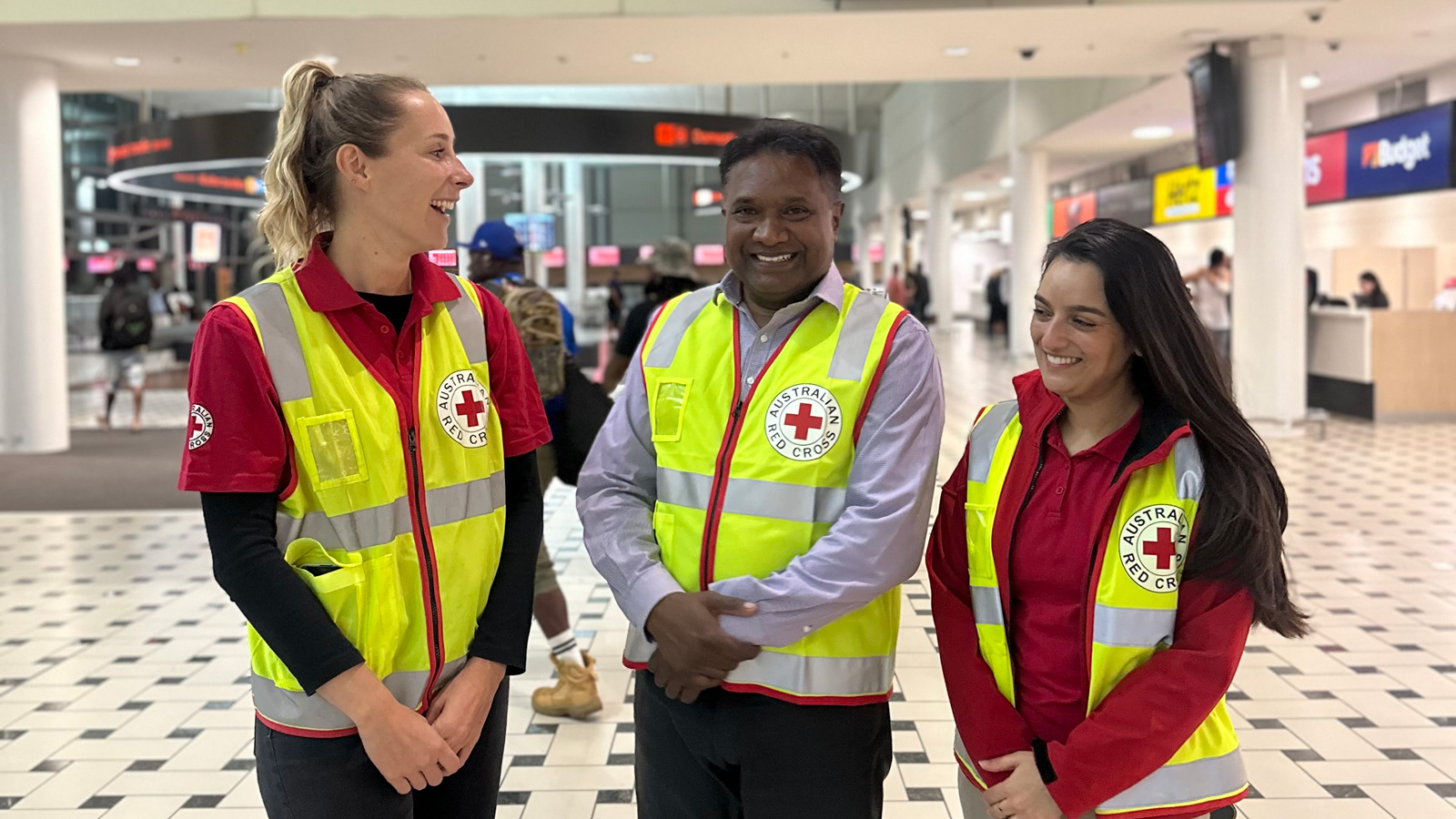


Bill, who celebrated his 93rd birthday this year, doesn’t leave home anymore except to go to the doctor. He’s got a walker and hates the fuss and attention it attracts. It’s an innings to be proud of. But the years have taken a toll. As time has passed, his family has watched him become more isolated and withdrawn and struggle with depression.
But Bill’s lucky, too. He has Matt, his Red Cross visitor. Matt lifts his spirits when he's down, making him smile and feel good about himself.
On sunny days you’ll find Bill and Matt in the back garden, near Bill’s veggie patch, swapping stories and jokes over tea and biscuits. Bill’s daughter Sheryl says signing up her dad for a Red Cross visitor is the best thing she has ever done for him.
As people get older, their world can shrink as loved ones pass away, relatives move, and they lose their health and mobility, says Kat Butterworth, one of our Community Programs Officers in Newcastle, New South Wales. And for some people, their world narrows even further as they struggle to pay the bills and can no longer afford to do the things they enjoy.
Loneliness can affect mental and physical health, Kat says. One study found that almost a quarter of older Australians feel lonely either some or most of the time. And another associated chronic loneliness with an 80% greater risk of death in people aged 50 and up.
The visitor program is one of the many ways Red Cross supports older people. Our teams also provide daily check-in phone calls, meal deliveries and drive people to medical appointments.

Bill married Pam in 1955. She died 16 years ago, and he misses her a lot. All his friends and workmates from his days working in the coal mines have gone now, too. Bill is the last one standing.
Bill is determined to hold onto his independence for as long as he can. He makes his bed, heats his dinner, and puts on the washing. He wants to stay in his house – the one he built himself and raised his family in – until he dies.
Sheryl says when her dad was in the hospital with sepsis two years ago, medical staff told her he was depressed and suggested a Red Cross visitor. At first, Bill wanted nothing to do with it; to him, mental health meant nursing homes. But once he met Matt, he never looked back.
Red Cross has supported older people for decades, and the need is only growing. Hundreds of volunteers across Australia, like Matt, visit older, isolated people letting them know they're valued and they matter. It’s one of the many ways Red Cross helps older people stay independent, safe and connected. “Our support is like a big warm hug,” says Kat.
Bill has told Matt lots of stories from his 42 years underground in the mines. And he listens as Matt tells him about his life growing up in England. “He’s got lots of funny, interesting and quite scary stories from the mines,” says Matt. “He’s a bit of a prankster … I think we spend two hours every week just laughing.”
Matt’s been visiting Bill for two years, and their relationship has only deepened with time. “I think that’s one of the things he missed, that male connection and friendship … We are just good mates. He’s a good man.”
Red Cross visitors give older, isolated people a chance to celebrate their life, know it has meaning and pass on the things they’ve learnt.
Bill and Matt have a simple, easy friendship. And afterwards, Bill knows next week's visit will be marked in his kitchen calendar. Not far away, Matt's special teacup sits, waiting for his return.
“I'd be lost without him. I can't wait until the day he comes. As soon as he walks in, the place lights up,” says Bill, determined not to cry.
Those precious hours trading yarns and jokes with his best mate are the highlight of his week. Life isn’t always easy. But it’s always better with a friend at your side. Just ask Bill.

Thanks to our generous donors our teams are on call, ready to help 24/7, 365 days a year.
Red Cross pays our respects to the Aboriginal and Torres Strait Islander custodians of the country where we work, and to Elders, past, present and emerging.
Learn about our Reconciliation Action Plan and how we can all make reconciliation real.
This website may contain the images, voices or names of people who have passed away.